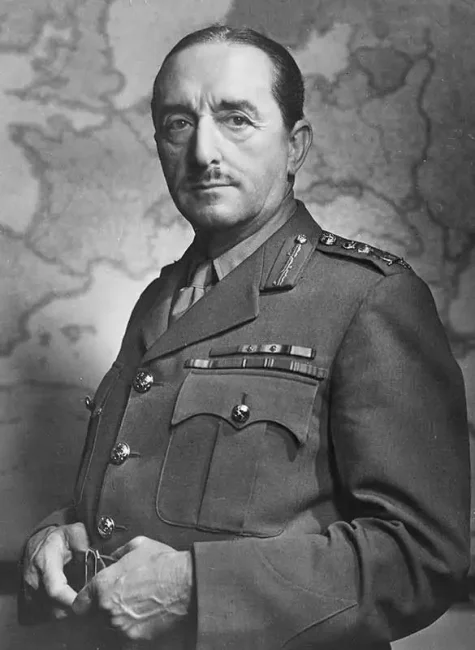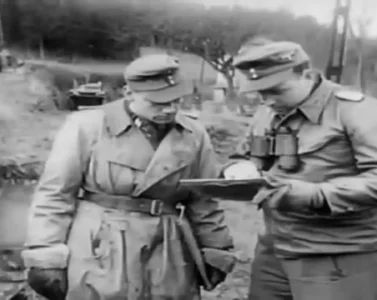- Military History
- Biographies
- Militarians Biographies
- Sir Alan Francis Brooke – 1st Viscount Alanbrooke
Sir Alan Francis Brooke – 1st Viscount Alanbrooke
A British field marshal, considered one of World War II's greatest strategists and field commanders
Alan Brooke was born in 1883 at Bagnères-de-Bigorre, Hautes-Pyrénées (France), to a prominent Anglo-Irish family from West Ulster with a long military tradition and was educated on the continent. After returning to England, he joined the army as a junior artillery officer (1902) and saw service on the Western Front during World War I, where he was given command of Canadian and Indian troops.
In recognition of his superior aptitude as a leader and his brilliant grasp of tactics and strategy, Alan Brooke was assigned as an instructor at the Staff College in Camberley serving in 1919 and from 1923 to 1927, when he was reassigned to the Imperial Defense College. He served at the college during 1927 and from 1932 to 1934. Two years later, they appointed him director of military training at the War Office, where he served during 1936-37. Concurrently with this assignment, he commanded the Antiaircraft Command and the Southern Command before and through the early months of World War II (1937-40).
Alan Brooke was given command of 11 Corps of the British Expeditionary Forces (BEF) and displayed great skill and presence of mind during the disastrous assault on the continent, the harrowing retreat to Dunkirk, and the evacuation back to England during May/June 1940. Thanks to Alan Brooke's skill, the British forces were saved from annihilation in this battle.
Following Dunkirk, Alan Brooke was named commander-in-chief of home forces in July 1940, then succeeded Sir John Dill as Chief of the Imperial General Staff in December 1941. In this position, Alan Brooke took part in the major strategic decisions of the war, including plans for Operation Overlord, which became the D-Day invasion. Although Alan Brooke lobbied vigorously to get command of the operation, that responsibility ultimately was given to Dwight David Eisenhower. Alan Brooke, the consummate professional, swallowed any disappointment he may have felt and gave his wholehearted cooperation to the American supreme allied commander and to other American officers.
Indeed, among Alan Brooke's greatest gifts was a facility for working well with American and Soviet military and civilian leaders. At the Tehran Conference, from November 28 to December 1, 1943, Alan Brooke helped to determine and coordinating the Allies' European strategy. He earned the respect of President Franklin D. Roosevelt, British prime minister Winston Churchill, and perhaps the friendship of Soviet premier Josef Stalin.
The government promoted Alan Brooke to field marshal in 1944 and in recognition of his distinguished war service; they created him a baron in 1945 and a viscount the following year. A year after World War II, in 1946, Alan Brooke resigned as chief of staff and retired from the military soon after. He died in retirement at his Hampshire estate in 1963.
One of the best British commanders of the war, his long tenure in staff posts has obscured his brilliance as a field commander. He was a gifted strategist, and he got on well with the British, Americans and Russians – winning Stalin’s friendship at the Tehran conference.
Sir Alan Francis Brooke – 1st Viscount Alanbrooke - Quick Facts
- 1st Division (Mobile Division - British Army)
- 8th Infantry Brigade (British Army)
- British Army
- Chief of the General Staff (United Kingdom)
- Commander-in-Chief (Home Forces - British Army)
- II Corps (British Army)
- Royal Regiment of Artillery (British Army)
- Royal School of Artillery (United Kingdom)
- Southern Command (United Kingdom)
- WWI (1914-1918)
- WWII (1939-1945)
- {{#owner}}
- {{#url}} {{#avatarSrc}}
{{name}} {{/url}} {{^url}} {{#avatar}} {{& avatar}} {{/avatar}} {{name}} {{/url}} - {{/owner}} {{#created}}
- {{created}} {{/created}}
























